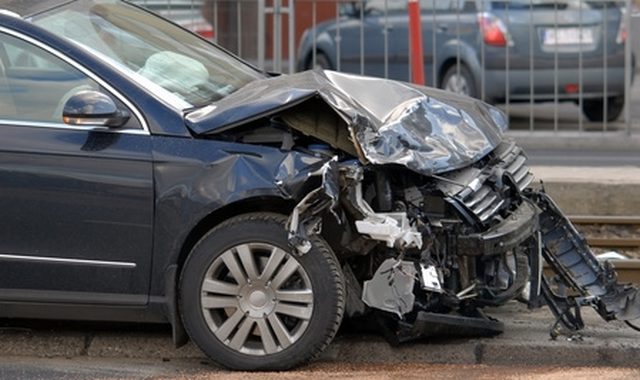Currently, each person has at least one valid contract of a motor vehicle, hull insurance, building, apartment or accident insurance policy. The presence of such a document inspires confidence that in the event of an adverse event, property losses or expenses incurred in restoring health will be compensated by the insurance organization.
Insurance payment
According to applicable laws, a specializing company is obliged to reimburse the value of damaged or lost property during an insurance event. If these losses can be determined in monetary terms, then with life and health insurance it is impossible to determine the price of a lost state of health or death of a person.
Therefore, in insurance terminology, the concepts of "insurance payment" and "insurance indemnity" are distinguished. The first category relates to medical contracts, accident insurance policies, funded types of life insurance. Upon the occurrence of an insured event or survival to a certain event, payment is made based on the amount of the contract. When causing damage to human health, compensation calculations are made taking into account the severity of the injury and the duration of treatment.
Insurance compensation
According to property types, upon the occurrence of an unforeseen event, there is a real opportunity to determine the size of the loss incurred for the destruction or damage of the insured object. Such calculations ultimately amount to the amount of insurance compensation. However, this can be both the property specified in the contract and the items of third parties. In case of liability insurance, compensation is accrued for failure to receive the expected profit or damage to the environment, depending on the type of agreement. When determining the amount of payment, they rely on the cost of restoration of this object and the insurance amount, which is indicated in the contract.
Thus, the term “insurance indemnity” is used for property types of contracts, transportation products and liability insurance.

What determines the amount of compensation for losses?
By signing an insurance contract, the company's customers believe that now in an emergency or catastrophic event, they will be able to receive the full value of the lost or damaged property. However, there are various factors that affect the amount of insurance compensation, namely:
- real value of the object;
- insurance amount under the contract;
- the amount of damage received or caused;
- system of "insurance coverage".

When concluding a policy, a company client fills in a column that carries information about the actual price of the property, which is subject to insurance. The next step is to indicate the insurance amount, that is, the price at which the insured wishes to purchase protection. The most correct in such a situation are the same numbers in these clauses of the contract. The sum insured cannot be higher than the real value of the property. At the same time, it may be less than this price. However, in the event of an accident that falls within the scope of the contract, the client of the company must be prepared for the operation of the “insurance coverage” system. Compensation for damage by the insurance company will be made in proportion to the liability assumed. For example, an object worth one hundred thousand rubles was insured for fifty thousand rubles. The real responsibility of the core organization is fifty percent.If the loss is twenty thousand rubles, then real compensation will be made in the amount of ten thousand rubles.
Payment Procedure
Insurance indemnity is a real opportunity to reduce the amount of losses incurred at the expense of company insurance funds. However, in order to receive compensation, the policyholder must strictly follow the procedure.
First of all, upon the occurrence of an insurance event, immediately or within the time specified in the contract, inform the insurer of the incident. Such a statement is made over the telephone and independently at the company’s office. It is necessary to communicate all available information on the event and provide supporting documents for losses. In case of a traffic accident, it is necessary to confirm the fact with official documents from the traffic police, in case of fire - a certificate from the fire inspection, in case of a natural event - from the hydrometeorological center. Mandatory availability of passports, certificates, contracts of sale for property that is damaged or destroyed as a result of an insured event.
The specialist of the financial organization, within the time specified in the signed policy, processes all the information and calculates the insurance indemnity. In insurance, this amount should cover the amount of loss incurred.

Beneficiary Recipients
To restore property, the insurer transfers insurance compensation to the client’s bank account. This is the amount that the policyholder should have enough to repair, replace spare parts, purchase new property. However, not only he has the right to compensation. In order to receive a payment, you must confirm the ownership of the property. So, if a car is damaged, then the client must have a registration certificate in his name. If the house is damaged, the policyholder is required to present documents of ownership.
In a situation where the client is not the owner, the insurance company sends the accrued indemnity to the real owner or beneficiary specified in the contract. If the property is in a bank pledge, the amount is transferred to the financial institution, if the building is leased to the documented owner.

Refusal of insurance compensation
The executed agreement with the insurance company does not guarantee 100% accrual of payment. Each contract contains conditions under which the insurer has the right to refuse insurance compensation. These are the points that are the same in all financial institutions:
- untimely notification of the fact of the event;
- false information about the owner in the contract;
- the event is not an insurance event;
- intentional damage to property for the purpose of profit;
- alcohol or drug intoxication, which led to the insured event;
- riots, riots, strikes;
- radiation or explosion;
- incomplete package of necessary documents.

When concluding a contract, it should be remembered that the purpose of insurance is to help a client who has suffered from a disaster. A signed document can give confidence in the future in case of adverse circumstances.
